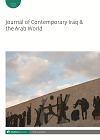
Full text loading...
 , Shahen Mohammed Faraj2
, Shahen Mohammed Faraj2
Students from the University of Halabja were asked in a survey conducted in April 2019 about their attitudes towards emigration in the wake of a prolonged financial crisis burdening the Kurdistan Region of Iraq (KRI) since 2014. While these students are not yet migrants, researching the reasons for their envisaged migration helps to better understand the challenges they face. Despite a continuous development of its post-secondary education sector, the KRI still struggles with low absorption rates of graduates. At the same time, the KRI exhibits a growing youth bulge, as well as high unemployment levels among its young population. These unfavourable conditions might cause a brain drain, pushing the educated youth to leave the country in search of better financial means, as well as waves of social unrest as seen throughout Iraq and the wider Middle East. First results show that more than half of the surveyed students have considered emigrating. Local job opportunities would, however, diminish their percentage.

Article metrics loading...

Full text loading...
References


Data & Media loading...

Publication Date:
https://doi.org/10.1386/jciaw_00030_1 Published content will be available immediately after check-out or when it is released in case of a pre-order. Please make sure to be logged in to see all available purchase options.